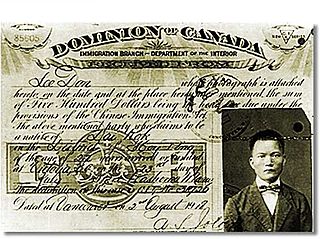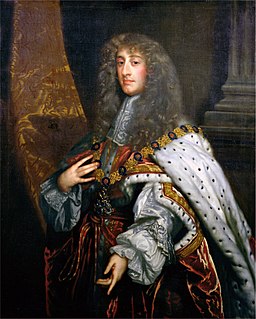Abhorrers, the name given in 1679 to the persons who expressed their abhorrence at the action of those who had signed petitions urging King Charles II of England to assemble Parliament.
Mandamus is a judicial remedy in the form of an order from a court to any government, subordinate court, corporation, or public authority, to do some specific act which that body is obliged under law to do, and which is in the nature of public duty, and in certain cases one of a statutory duty. It cannot be issued to compel an authority to do something against statutory provision. For example, it cannot be used to force a lower court to reject or authorize applications that have been made, but if the court refuses to rule one way or the other then a mandamus can be used to order the court to rule on the applications.

The Petition of Right is a major English constitutional document that sets out specific liberties of the subject that the king is prohibited from infringing. Passed on 7 June 1628, the Petition contains restrictions on non-Parliamentary taxation, forced billeting of soldiers, imprisonment without cause, and the use of martial law. Following disputes between Parliament and King Charles I over the execution of the Thirty Years' War, Parliament refused to grant subsidies to support the war effort, leading to Charles gathering "forced loans" without Parliamentary approval and arbitrarily imprisoning those who refused to pay. Moreover, the war footing of the nation led to the forced billeting of soldiers within the homes of private citizens, and the declaration of martial law over large swathes of the country.

John Somers, 1st Baron Somers, was an English Whig jurist and statesman. Somers first came to national attention in the trial of the Seven Bishops where he was on their defence counsel. He published tracts on political topics such as the succession to the crown, where he elaborated his Whig principles in support of the Exclusionists. He played a leading part in shaping the Revolution settlement. He was Lord High Chancellor of England under King William III and was a chief architect of the union between England and Scotland achieved in 1707 and the Protestant succession achieved in 1714. He was a leading Whig during the twenty-five years after 1688; with four colleagues he formed the Whig Junto.

The Parliament of England was the legislature of the Kingdom of England, existing from the early 13th century until 1707, when it united with the Parliament of Scotland to become the Parliament of Great Britain after the political union of England and Scotland created the Kingdom of Great Britain.

The Exclusion Crisis ran from 1679 through 1681 in the reign of King Charles II of England, Scotland and Ireland. Three Exclusion bills sought to exclude the King's brother and heir presumptive, James, Duke of York, from the thrones of England, Scotland and Ireland because he was Roman Catholic. None became law. Two new parties formed. The Tories were opposed to this exclusion while the "Country Party", who were soon to be called the Whigs, supported it. While the matter of James's exclusion was not decided in Parliament during Charles's reign, it would come to a head only three years after he took the throne, when he was deposed in the Glorious Revolution of 1688. Finally, the Act of Settlement 1701 decided definitively that Catholics were to be excluded from the English throne.

The Chinese head tax was a fixed fee charged to each Chinese person entering Canada. The head tax was first levied after the Canadian parliament passed the Chinese Immigration Act of 1885 and was meant to discourage Chinese people from entering Canada after the completion of the Canadian Pacific Railway (CPR). The tax was abolished by the Chinese Immigration Act of 1923, which stopped all Chinese immigration except for that of business people, clergy, educators, students, and other categories.
Public Interest Litigation is directly filed by an individual or group of people in the Supreme Court and High Courts and judicial member. The person who is filing the petition must not have any personal interest in the litigation, this petition is accepted by the court only if there is interest of large public involved. Generally this petition is filed by a public spirited person or organisation, if it was felt that certain interests are undermined by the government; In such a situation, the court directly accepts the public interest litigation. It is a new legal horizon in which a court of law can initiate and enforce action to serve and secure significant Public Interest Litigation.(PIL)
An exclusion zone is a territorial division established for various, case-specific purposes.

In the United States the right to petition is guaranteed by the First Amendment to the United States Constitution, which specifically prohibits Congress from abridging "the right of the people...to petition the Government for a redress of grievances".

The Queensland Court of Disputed Returns is a court that adjudicates disputes concerning Queensland Government and local government elections and state referendums in Queensland, Australia. The Court is a division of the Supreme Court of Queensland.
Henry Powle was an English lawyer and politician who sat in the House of Commons at various times between 1660 and 1690. He was Speaker of the House of Commons from January 1689 to February 1689. He was also Master of the Rolls.
Petitioning is the administrative system for hearing complaints and grievances from individuals in the People's Republic of China.
Black jails are a network of extralegal detention centers established by Chinese security forces and private security companies across the People's Republic of China in recent years. They are used mainly to detain, without trial, petitioners, who travel to seek redress for grievances unresolved at the local level. The right to petition was available in ancient China, and was later revived by the communists, with important differences.

Private Acts are laws in the United Kingdom which apply to a particular individual or group of individuals, or corporate entity. This contrasts with a public general Act of Parliament (statute) which applies to the nation state. Private Acts can afford relief from another law; grant a unique benefit or, grant powers not available under the general law; or, relieve someone from legal responsibility for some allegedly wrongful act.

The Exclusion Bill Parliament was a Parliament of England during the reign of Charles II of England, named after the long saga of the Exclusion Bill. Summoned on 24 July 1679, but prorogued by the king so that it did not assemble until 21 October 1680, it was dissolved three months later on 18 January 1680/81.
The Stamenti was the parliament of Sardinia, consisting of representatives of the three estates of the realm.
National Campaign for People’s Right to Information was established in 1996 to push for the creation of a Right to Information Act in India.
Grievance Redressal is a management- and governance-related process used commonly in India. While the term "Grievance Redressal" primarily covers the receipt and processing of complaints from citizens and consumers, a wider definition includes actions taken on any issue raised by them to avail services more effectively.













